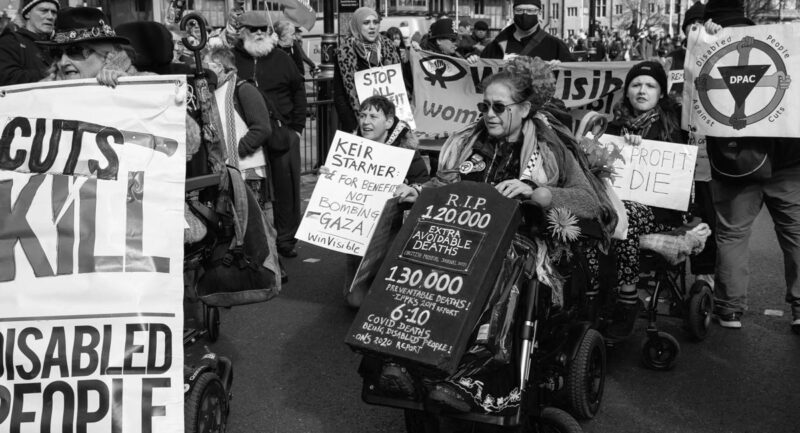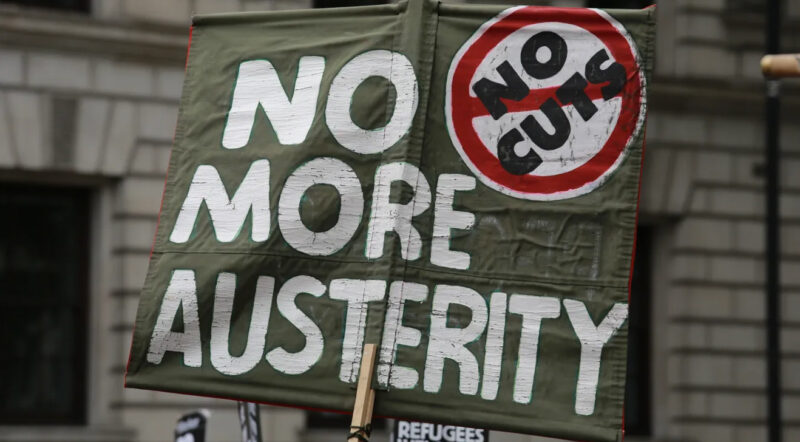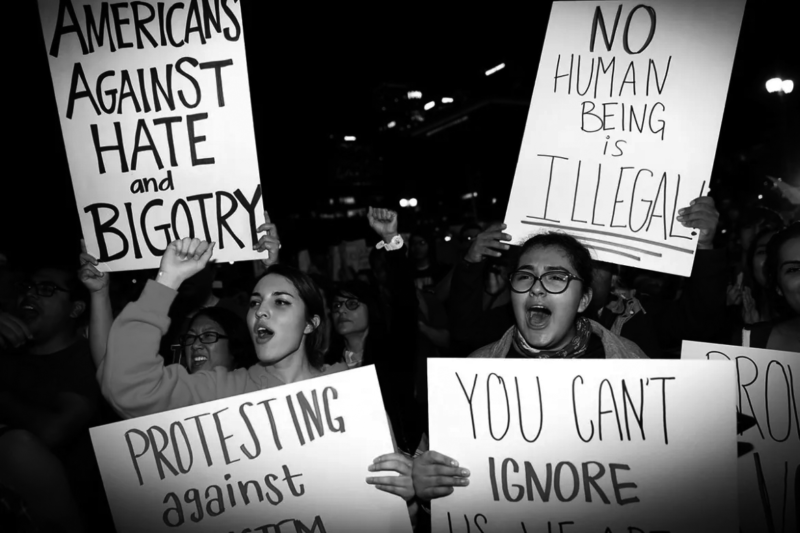Youth uprising in Madrid
Thousands of people have begun protests across Spain in the run up to the elections, a camp modelled on Tahrir square has been set up in Madrid’s city centre. So who are the protesters and what do they want?
 Something is moving in Spain. After the unemployment rate reached a new peak of 21.3% in the first months of 2011 (more than 4.9 million people) due to the current crisis and the stagnation of the real estate market which, together with tourism, was the engine which drove the economy, it seemed nothing could make the Spanish population revolt against this situation.
Something is moving in Spain. After the unemployment rate reached a new peak of 21.3% in the first months of 2011 (more than 4.9 million people) due to the current crisis and the stagnation of the real estate market which, together with tourism, was the engine which drove the economy, it seemed nothing could make the Spanish population revolt against this situation.
This is despite the reality of the 45% unemployment rate among young people (up to 25 years old). The negotiators of the major unions (UGT, CCOO) and the employer’s organization (CEOE) were on the verge of reaching a new agreement to sacrifice yet more workers’ rights to the god of the economic crisis and the big political parties were quarrelling over who could gain more approval from the IMF to return us to some financial paradise, so life was going on much as before.
But outside of the traditional channels of popular opinion the restlessness was growing. As in the cases of Tunisia, Egypt and other countries, the internet and social media like Facebook and Twitter, have served as channels to call people to the action. With the proximity of local elections next weekend (to the governments of cities and autonomous communities), a citizens’ platform, , called a protest against the current situation.
On May 15th demonstrations were held in almost 60 locations, including the major cities of Madrid, Barcelona, Seville, Valencia and Bilbao, and it is estimated than 130,000 people took part in them, a big number considering that the organization defines itself as “apolitical” and was not supported by any political party nor by workers’ organizations.
In Madrid, the peaceful march ended with the police charging against allegedly “violent radicals”. But that same night, and outside of the original call, a spontaneous assembly of people formed in the Puerta del Sol, the most famous of Madrid’s squares. During the next day, more and more people joined them with the intention of continuing the protest by camping in the square at least until the day of the elections (next Sunday 22nd) or even longer. In the early hours of Tuesday 17th they were evicted by the police but, that same night, they were back again, ready to resist. And they are still there, resisting even the rain that has fallen on Madrid this last night.
Who are they?
Not just young people but “indignados” – people outraged by the current economic situation and by the lack of humanity of the measures imposed by the credit rating agencies, the IMF, the World Bank and the European Union to make common people pay for the banks’ excesses and implemented by the political parties that effectively control the Spanish political arena. “Indignados” because they see that the “democracies” are in fact governed by the financial institutions.
In the manifesto published yesterday, they state: “We do not represent any party or association. We are united in the desire for change. We are here for dignity and solidarity with those who cannot be here.” Assemblies and work groups have been formed to solve questions like food, water and the disposal of waste.
What do they want?
“We are here because we want a new society that prioritizes life over economic and political interests. We advocate a change in society and social consciousness. To show that society is not asleep and that we will continue to fight for what we deserve by peaceful means. […]We want it all, we want it now”.
The movement has taken the political parties by surprise. Both the social-democratic PSOE, in the government, and the liberal-conservative People’s Party, say that they “understand” the feelings of the protesters, and call for a vote for their respective parties, despite the fact that the hopelessness they represent is the main cause of the protests!
Izquierda Unida (IU, the coalition of left parties that includes the Communist Party (PCE) and has been the third national party in the past decades) has showed its support for the movement and Cayo Lara, the general coordinator, even joined the protest on May 15th. The impression is that, even if the demonstrators do not want to say it aloud because it would force the police to intervene using the pretext of the electoral law, an ascent of IU could be one of the outcomes of the demonstrations.
One of the main demands of the movement is the modification of the electoral law to get a “participatory democracy”, something that somewhat coincides with the “one person, one vote” which Izquierda Unida has been campaigning for for a long time, since the current law gives more weight to the major parties or small parties (mainly nationalists) that receive concentrated votes in some districts, to the detriment of the minority parties like IU that get a good number of votes but split across many districts.
The main unknown factor is whether the protests will continue after next Sunday’s elections? We’ll see.









